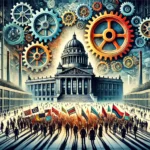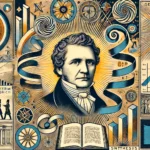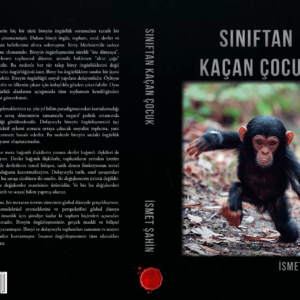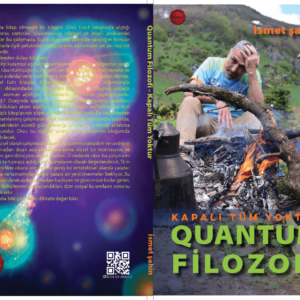
Philosophical Epistemologies for Global Education: A Systematic Exploration of Forthcoming Challenges

Below is a blog-friendly version of the essay, adapted for web publication. It includes a more conversational style, internal links (placeholders for your own blog content), and external hyperlinks to relevant UNESCO pages and other online resources. You can modify the internal link placeholders (/your-internal-link-here) to point to other posts or pages on your own website.
Philosophical Epistemologies for Global Education
A Systematic, Hermeneutic, and Dialectical Exploration
Estimated Reading Time: ~10 minutes
Table of Contents
- Introduction
- Methodology Overview
- Globalization and Educational Epistemologies
- Critical Pedagogy and Knowledge Decolonization
- Technological Advancements and AI Challenges
- Cultural Integration and Epistemological Pluralism
- Ethical Considerations in Knowledge Production
- Policy Implications for Global Education
- Discussion
- Conclusion
- Further Reading and References
- AI Critique and Disclaimer
1. Introduction
Global education is at a pivotal moment. Rapid globalization, technological leaps, and cultural shifts are transforming how we define and disseminate knowledge. For decades, Western epistemologies have dominated educational models, sometimes sidelining alternative ways of knowing. However, institutions like UNESCO have begun championing pluralistic approaches that recognize indigenous knowledge systems and support equitable, inclusive learning.
Key Questions
- How does globalization shape educational philosophies?
- What ethical and technological challenges do we face?
- Can critical pedagogy help us decolonize and democratize knowledge?
These questions guide our systematic, hermeneutic, and dialectical exploration. Keep reading to see how this multidimensional methodology offers nuanced insights into the future of global education.
If you’re new to philosophical epistemologies and want a brief primer, check out our Introduction to Epistemology on this blog.
2. Methodology Overview
2.1 Mixed Framework: Systematic, Hermeneutic & Dialectical
- Systematic Review
We scanned multiple academic databases (e.g., Scopus, Web of Science, ERIC) for recent peer-reviewed articles, UNESCO policy documents, and relevant books. - Hermeneutic Analysis
Drawing on Hans-Georg Gadamer’s philosophical hermeneutics, we interpreted texts by continuously shifting between individual passages and the broader socio-historical context. - Dialectical Exploration
Inspired by Critical Theory and Paulo Freire’s work on liberatory education, we applied a thesis–antithesis–synthesis model to identify key contradictions and propose reconciliations.
Curious about how hermeneutics works in practical research? Read our Hermeneutics in Action post to learn more.
3. Globalization and Educational Epistemologies
Globalization has expanded our cultural and intellectual horizons. Yet, it also risks amplifying Western-centric knowledge systems. According to UNESCO’s Global Education Monitoring Reports, schools worldwide often prioritize standardized testing—like PISA—over local or indigenous knowledge.
Major Tensions
- Monopolies on Knowledge: Western academic traditions can overshadow local epistemologies.
- Policy Contradictions: While organizations like UNESCO promote pluralism, many national policies cling to rigid, test-centric systems.
For more on how Western paradigms became so dominant, visit our Colonial Legacies in Education page.
4. Critical Pedagogy and Knowledge Decolonization
4.1 Dialogue and Reflection
P. Freire’s “Pedagogy of the Oppressed” champions a dialogical learning model where students co-create knowledge. This approach echoes UNESCO’s emphasis on transformative education in its Reimagining Our Futures Together report.
Key Insights
- Reflexive Dialogue: Encourages learners to question dominant narratives and engage with indigenous and local perspectives.
- Decolonization: Shifts us from a “banking concept” of depositing facts to a more collaborative and emancipatory approach.
4.2 Institutional Barriers
Despite the promise of critical pedagogy, institutional inertia—rooted in standardized testing, Eurocentric curricula, and conservative policies—can stifle its implementation. Teacher training rarely covers Freirean or hermeneutic methods, limiting the adoption of culturally responsive teaching.
5. Technological Advancements and AI Challenges
5.1 Data-Driven Education
Artificial Intelligence (AI) and learning analytics promise personalized content and faster feedback loops. The UNESCO Recommendation on the Ethics of Artificial Intelligence underlines the need for human-centric AI tools that are transparent and unbiased.
Potential Benefits
- Individualized pathways for learners
- Data-driven insights to close performance gaps
Risks
- Algorithmic Bias: If training data isn’t diverse, AI systems can perpetuate inequalities.
- Loss of Teacher Autonomy: Overreliance on tech solutions can diminish critical, interpersonal aspects of learning.
Check out our deep dive on AI in Education to see real-world case studies.
5.2 Digital Ethics
Inequities in internet access can widen the digital divide, especially in low-income or rural areas (see World Bank’s Education Reports). Additionally, data privacy concerns loom large, highlighting the crucial role of policy frameworks that safeguard student information.
6. Cultural Integration and Epistemological Pluralism
Cultural integration thrives on acknowledging and interweaving multiple ways of knowing. While Western paradigms emphasize compartmentalized subjects and quantifiable outcomes, many indigenous knowledge systems focus on holistic, community-centric learning.
6.1 Overcoming Dominance
- Bilingual Education: UNESCO-backed programs in Latin America successfully integrated local languages, boosting learner engagement.
- Local Collaboration: Partnering with community elders to shape curricula fosters cultural pride and relevance.
6.2 Persistent Hurdles
- Academic Gatekeeping: Non-Western scholarship often struggles for visibility in top-tier journals.
- Fear of ‘Softness’: Some educators worry that recognizing spiritual or relational knowledge undermines “academic rigor.”
7. Ethical Considerations in Knowledge Production
7.1 Colonial Legacies
Colonial histories still reverberate in today’s educational policies. Works like Decolonizing Methodologies by Linda Tuhiwai Smith expose how research can perpetuate power imbalances when it dismisses indigenous voices.
7.2 Commodification of Knowledge
Patents, proprietary academic platforms, and global rankings turn knowledge into a marketable commodity. While innovation has its merits, it can overshadow community-based learning models with less immediate profit potential.
7.3 Digital Dissemination
Platforms like Google Scholar and ResearchGate have democratized scholarship, but algorithmic curation may still favor Western or mainstream research. UNESCO’s Open Educational Resources aim to keep knowledge accessible and equitable.
8. Policy Implications for Global Education
8.1 National Curricula Reforms
- Mandate Indigenous Content: Policies should require integration of local histories, traditions, and languages.
- Collaborate with Community Leaders: Authentic, context-rich lessons stem from direct engagement with indigenous experts.
8.2 Research Funding
- Diversify Grants: Encourage interdisciplinary and cross-cultural studies that spotlight non-Western epistemologies.
- Disseminate Openly: Incentivize Open Access publishing to reduce paywall barriers.
8.3 Fair Technology Regulation
- Ethical AI: Implement data privacy and bias-mitigation protocols.
- Infrastructure Support: Provide tech resources in under-resourced areas to bridge the digital divide.
Explore our Policy and Education Reforms post for practical implementation strategies.
9. Discussion
Our hermeneutic reading highlights the deep cultural and historical roots of educational frameworks, while the dialectical lens reveals tensions between global standardization and local diversity. UNESCO’s campaigns, though theoretically robust, face real-world challenges in shifting entrenched policies and power structures.
Core Paradox:
- We strive for epistemological diversity but rely on standardized tests and homogeneous curricula.
- AI can personalize learning but risks perpetuating inequalities if poorly regulated.
For an expanded discourse on decolonial and critical theories, see our Extended Reading List.
10. Conclusion
Global education must embrace pluralistic, contextual knowledge to remain ethically and academically robust. By integrating critical pedagogy, equitable technology, and local cultures, we can create transformative learning spaces. Our systematic, hermeneutic, and dialectical exploration suggests that while UNESCO’s frameworks provide direction, success hinges on political will, community involvement, and comprehensive teacher training.
Takeaway: Education that values multiple epistemologies not only enriches student experiences but also fosters deeper cultural respect and global solidarity.
11. Further Reading and References
Here are some key sources and external links:
- UNESCO:
- Foundational Works:
- Research & Data:
For the complete list of scholarly references (APA 7th), click here or scroll to the Full Reference List at the end of this blog.
12. AI Critique and Disclaimer
Note: This blog post was developed with the assistance of an AI-based system, trained on a wide range of academic and policy texts. While it synthesizes human intellectual knowledge, please remember:
- Interpretive Limits: AI cannot fully capture local nuance or personal experiences.
- Ongoing Updates: The field of global education evolves rapidly; always consult the latest research and experts.
- Not a Substitute for Expertise: AI outputs should be a starting point for discussion, supplemented by peer-reviewed studies and professional advice.
Thank you for reading! Feel free to share your thoughts or experiences in the comments section below. If you found this post helpful, explore our Blog Homepage for more articles on education, epistemology, and cultural studies.
Review
56%
Summary Philosophical Epistemologies for Global Education In conclusion, the synthesis of philosophical epistemologies with global education calls for an ongoing commitment to understanding and addressing the complexities of knowledge within our interconnected world. By embracing diverse perspectives and fostering collaborative efforts, we can work toward a more equitable and enriching global educational experience for all learners.




























RECENT COMMENTS